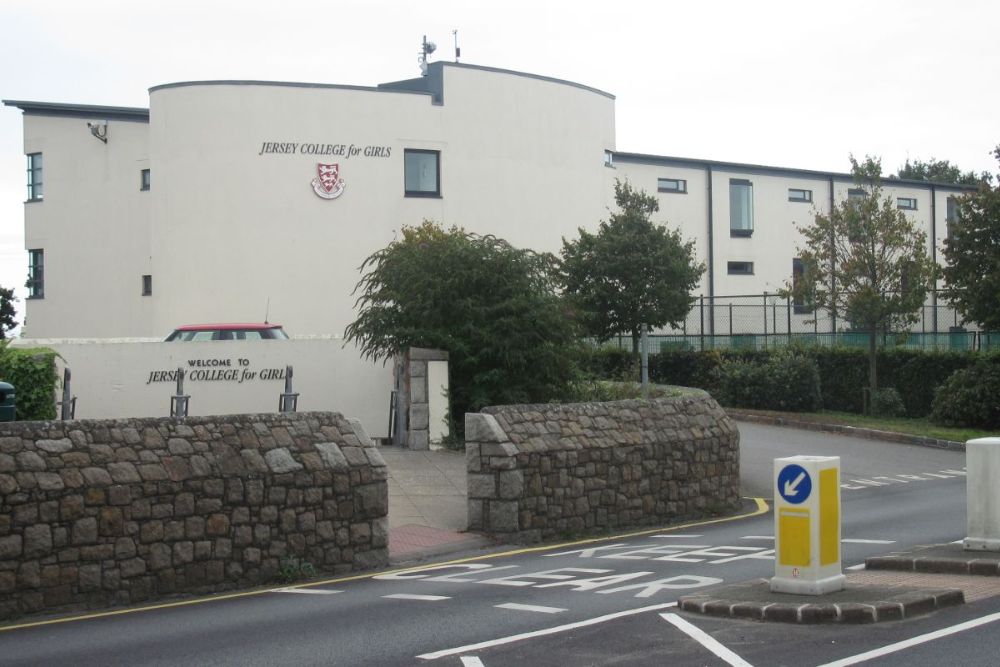
Jersey's government has been told to get a better grasp of sexual harassment and abuse in schools following 68 anonymous testimonies from JCG students.
Two surveys were carried out amongst sixth form students at JCG following the tragic death of Sarah Everard in March.
They were set up by two students for Years 12 and 13.
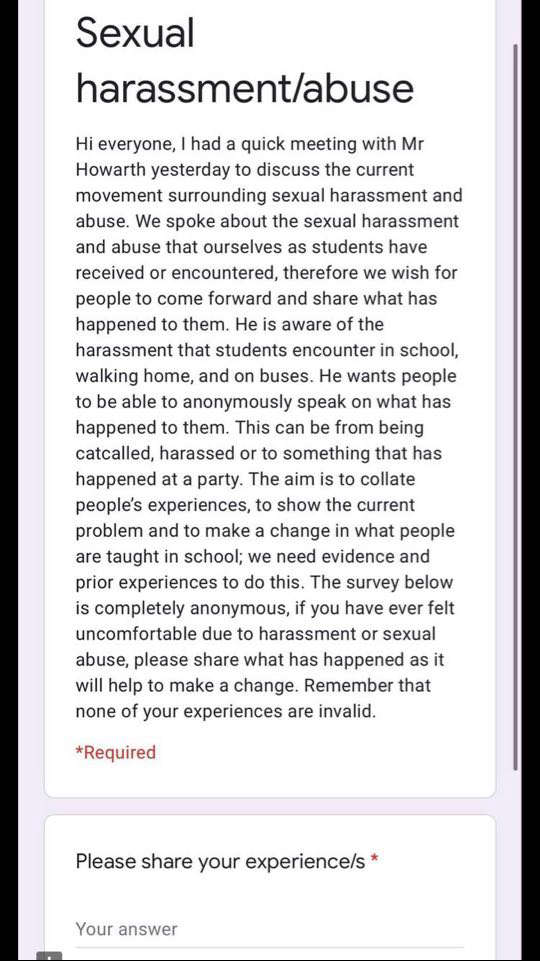
The Year 13 survey stayed within JCG.
The Year 12 survey results were given to the JCG Principal on 19 March 2021 and then shared with senior staff at Victoria College, the States of Jersey Police, and multi-agency professionals.
They included allegations of verbal abuse, sexual taunts, intimidating physical behaviour, online harassment, and rape.
A few male students also reported facing homophobic taunts and bullying.
These mirror some of the findings from a review into sexual abuse in schools across England that was published in June 2021. It found found around nine in ten girls in the UK have reported being sexually harassed in schools, and that many children don't report incidents - such as being sent nude photos - because it happens so often.
The watchdog Ofsted expressed concern these actions were becoming "normalised".
Sexual Abuse Review: https://t.co/uG5T7Q0vLA
— Ofsted (@Ofstednews) June 10, 2021
'This review shocked me. It’s alarming that many children and young people, particularly girls, feel they have to accept sexual harassment as part of growing up. They simply don’t feel it’s worth reporting'
Amanda Spielman, HMCI pic.twitter.com/armurMcrPF
The Jersey Safeguarding Partnership Board was tasked with reviewing the handling of the allegations in Jersey, and whether policy was followed properly to ensure 'a safe and appropriate outcome for the young people concerned.'
The SPB report raises some concerns that this wasn't the case.
There were instances of students changing their daily routines to avoid being harassed, and the SPB says pupils have been reluctant to come forward, which has led to incidents being under-reported and normalised.
Leadership teams at JCG and VCJ have been praised for responding quickly and proactively to the survey findings.
Senior staff have been on duty to supervise students through school areas where incidents of abuse were reported, with students reporting the situation had 'improved significantly' as a result.
The two schools also worked together to coordinate communication and consistent messages to parents about the issues and the work they were doing together.
A programme of age-appropriate assemblies were delivered in both schools by the police at the start of the summer term.
The schools published a statement of intent with a commitment to 'leading positive change and building inclusive and respectful communities where all feel safe... working even more closely together... in bringing about a necessary change of attitudes and behaviours.'
That programme includes:
- A student working party to establish positive relationships and to advise senior leaders on action
- Information and training for staff and parents
- Enforcing a joint-school policy on gender equality
Concerns were however raised that allegations may not have been managed to ensure a safe and appropriate outcome for the young people concerned.
That includes:
A lack of guidance about peer on peer abuse - "The lack of safeguarding guidance about peer on peer abuse in both the SPB Child Protection Procedures and the Education Child Protection Policy leaves school leaders with difficult decisions about the response to incidents of peer on peer abuse that they are not fully equipped to make.
"School leaders, DSLs (Designated Safeguard Leads) and other professionals need up-to-date safeguarding guidance about peer on peer abuse that provides practice knowledge appropriate to their role, outlines referral routes linked to the SPB Continuum of Need, and signposts support agencies with a contribution to make from early help through to specialist intervention."
Not enough consideration of the way in which schools would need to respond to any testimonies of significant harm, such as sexual assault and violence - "The Principal should have sought advice from the consultation service in the MASH (Multi-Agency Safeguarding Hub) or the Designated Safeguarding Officer-Education prior to finalising the process for seeking and collating the testimonies. This would have ensured more effective and timely multi-agency involvement in creating a range of safe options for the students to make disclosures, to evaluate the issues, and coordinate support.
"Given the high profile media interest in concerns about sexual harassment in schools and colleges, an early alert to senior officers in CYPES would also have been appropriate and expected at that point."
Greater recognition of the impact on the students’ well-being from the ‘testimony’ process should have been anticipated - "The Principal and Vice-Principal at JCG maintained contact with Students A and B and their parents as the arrangements for the surveys were put in place. Even with this support it is evident that the impact on the two students was significant.
"They found the responsibility for collating and editing the testimonies to be stressful, partly because of the responsibility it placed on them in maintaining the trust of peers and mediating a network of peer relationships, but also because of the nature of the testimonies themselves."
A significant delay in involving the police and the government - "Both agencies were left having to put in place support from partner agencies for students at JCG and young people more generally at short notice immediately prior to a school and public holiday period."
The Safeguarding Partnership Board has warned that staff can't promise confidentiality to young people - as they may need to share information to protect them.
The outgoing Director General for Children and Education, Mark Rogers, says safeguarding trumps anonymity.
"The welfare of a child does come before the confidentiality of the issue, but we need to make sure that youngsters feel confident that their issue will be treated sensitively and that they will be supported.
"We will be building on our training for all professionals, not just school professionals."
Students reported finding it difficult to report abuse individually for many reasons, including a fear of not knowing what happens next.
The SPB says schools need to develop an environment where children and young people can talk to professionals about abuse, and steps to achieve that could include:
- Engaging them in small groups to discuss different forms of harmful sexual behaviour
- Mapping spaces in school and outside school areas where such behaviour takes place
- Tackling culture where reporting is seen as 'snitching' as part of the curriculum
Four recommendations have been made as part of this review, which are:
- The government to work together with schools and other agencies through the SPB to develop a shared understanding of the prevalence of sexual harassment and abuse in Jersey schools, promote effective whole-school responses, and coordinate timely access to appropriate support for victims and perpetrators.
- The SPB should develop and publish multi-agency guidance for peer on peer abuse.
- The SPB should commission multi-agency training about peer on peer abuse
- The government should review its systems for gathering intelligence about safeguarding issues in Jersey schools, as part of a wider review for improving and assuring the effectiveness of safeguarding in education.
The government has vowed to act immediately to understand the level of sexual harassment and abuse in all Jersey schools and colleges.
A question about sexual harassment has been added to this year's Children and Young People Survey - and a campaign has started to direct students to the support services that can help them.
Banners signposting support services, such as the Sexual Assault Referral Centre, have been delivered to all island secondary schools and colleges.
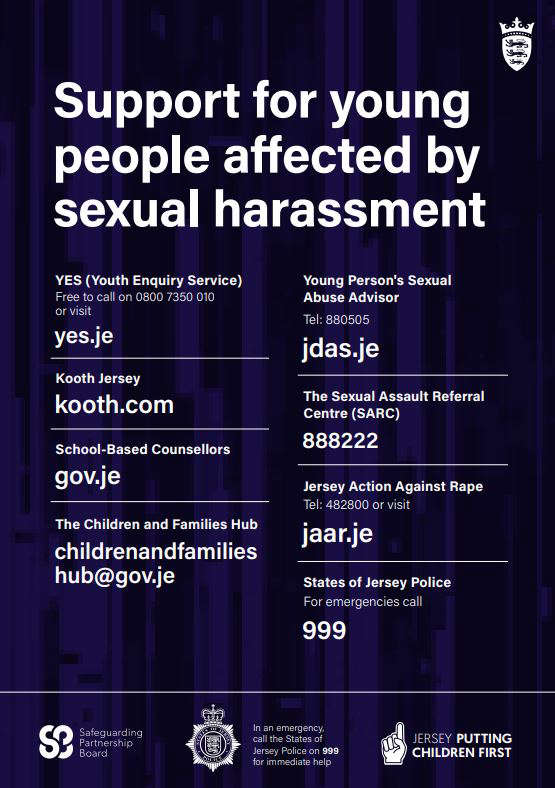
Mr Rogers tells Channel 103 what else will be done.
"Enhancing that culture in every school where youngsters feel safe to disclose is important, supporting staff with information and training to give them the confidence to be able to hear it and deal with it, and actually just knowing some of the basic rules they should follow.
"If this report tells us anything, it's that all of us have a responsibility to build that confidence so that our young people feel safe and secure in making these disclosures in the future.
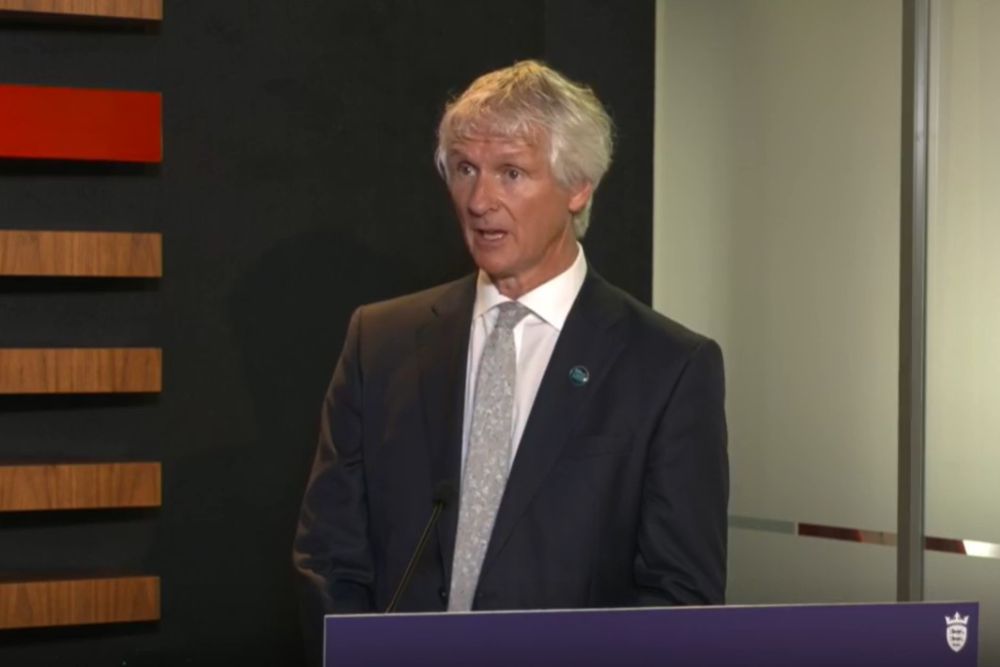
"That is the fundamental issue that societies face. We have created cultures where women feel that they're unlikely to be sufficiently believed or even believed at all.
"That's the thing we need to do something about."
The Education Minister has also revealed that he has spoken to students involved in the Youth Parliament, who he is due to have further talks with, about ways to support young people, which could include changes to the PSHE curriculum.
"I would like to offer my sincere gratitude to the students for their courage in seeking to bring these extremely concerning allegations of sexual harassment and abuse to light. In doing so, it has meant that we can investigate the prevalence in all schools across Jersey and develop guidance and responses to tackle this together.
"I am pleased that senior officers in CYPES have been recognised in the independent review for their response in ensuring support for young people, who had experienced sexual harassment, was immediately made available when the allegations came to light and for establishing an ‘operation’ to coordinate a review of the way the students’ testimonies had arisen and been handled.
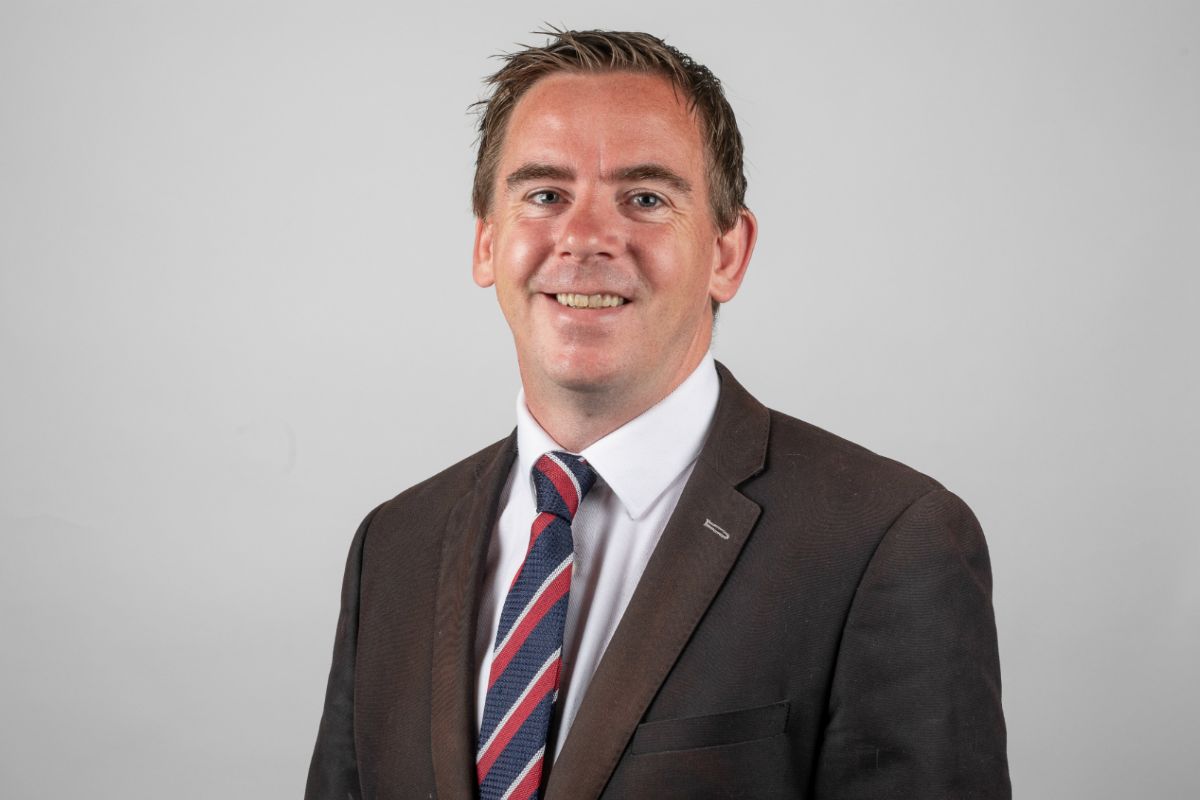
"This review will not only help to keep children and young people safe, seek to encourage young people to talk about their experiences and inform important learning for the future in education, but it also highlights there is a real need to address cultural issues of sexual harassment and abuse across society." - Deputy Scott Wickenden.
No individual reports of sexual harassment or abuse have been made directly to the schools in Jersey following these testimonies.
Up to 55 of these allegations were analysed as potential crimes by the police, but no further action was taken as the force did not receive any accounts involving names of potential victims or perpetrators.
Superintendent Alison Fossey says it's important that students know about other support options that are out there.
"For a young person, I can imagine that reporting to the police is a daunting thing. What does that mean, what does that involve, what's going to happen in the process thereafter?
"There are so many questions they will have, that they need to be guided through that process and supported.
"What we do want is for them to come forward so we can safeguard them along the way, because if we don't know these matters, then we can't put in place the safeguarding for them."
The full report from the Safeguarding Partnership Board can be found here.


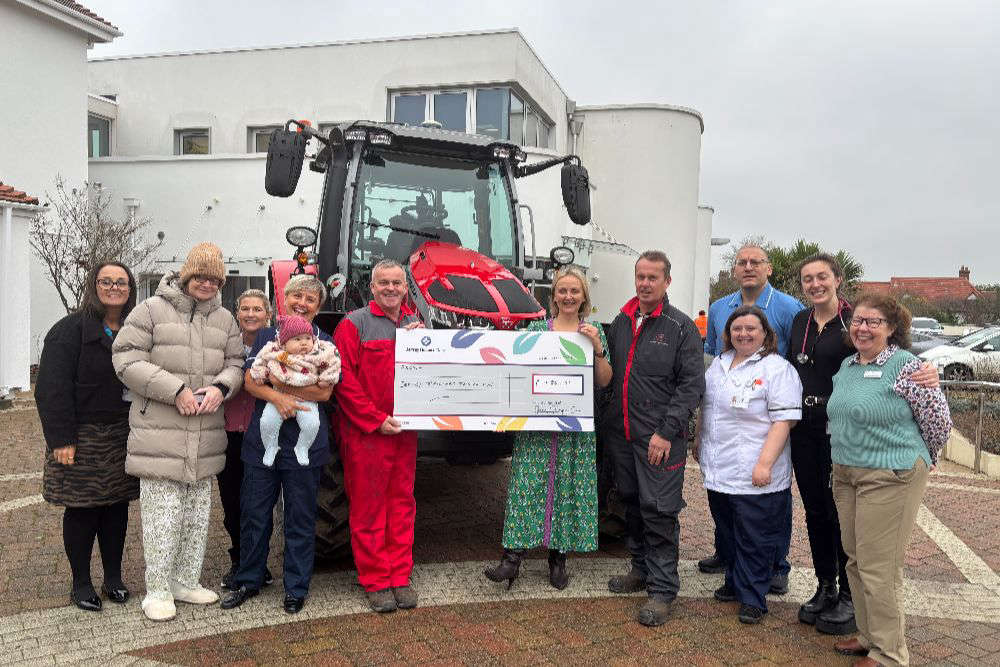 Jersey's first Christmas Tractor Run raises more than £10k
Jersey's first Christmas Tractor Run raises more than £10k
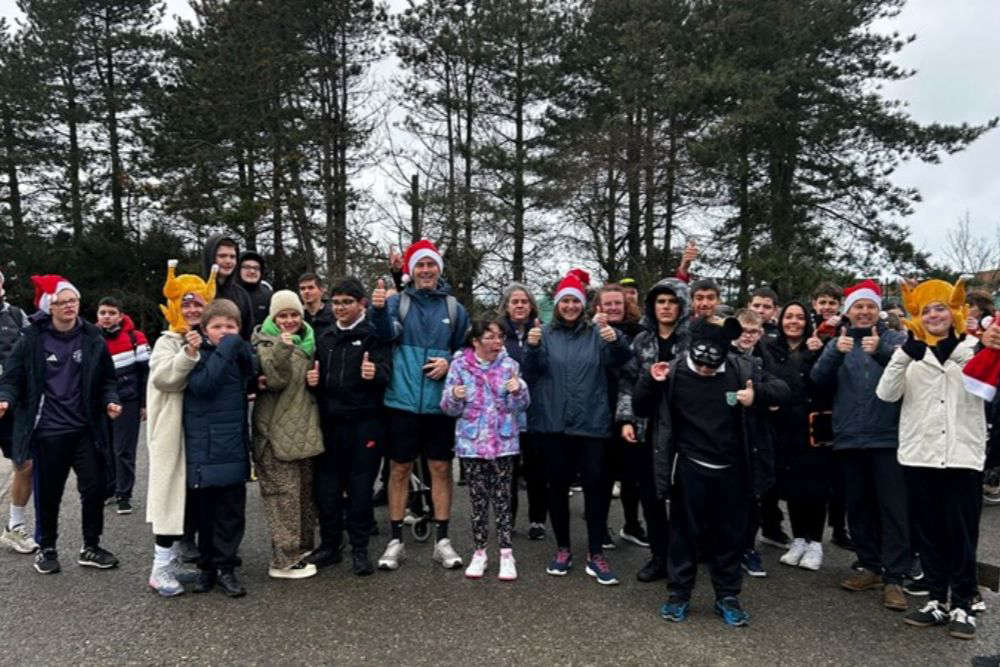 Finish line looms for school's Advent Challenge
Finish line looms for school's Advent Challenge
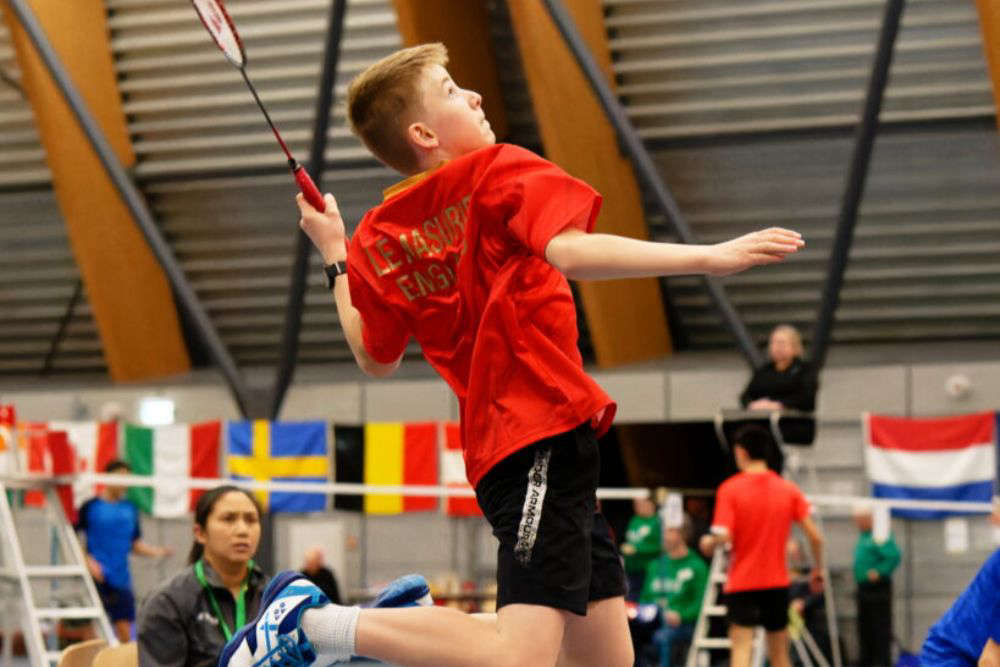 £1 million into Jersey sport in 2026
£1 million into Jersey sport in 2026
 Channel Islands could technically have a White Christmas
Channel Islands could technically have a White Christmas
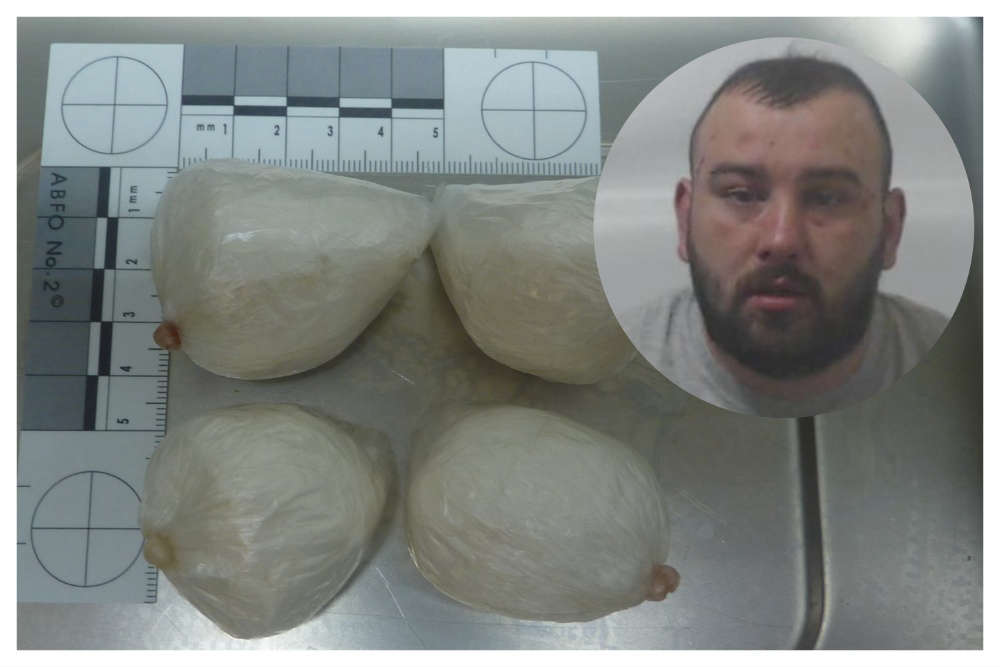 Cocaine importer jailed for six years 9 months
Cocaine importer jailed for six years 9 months
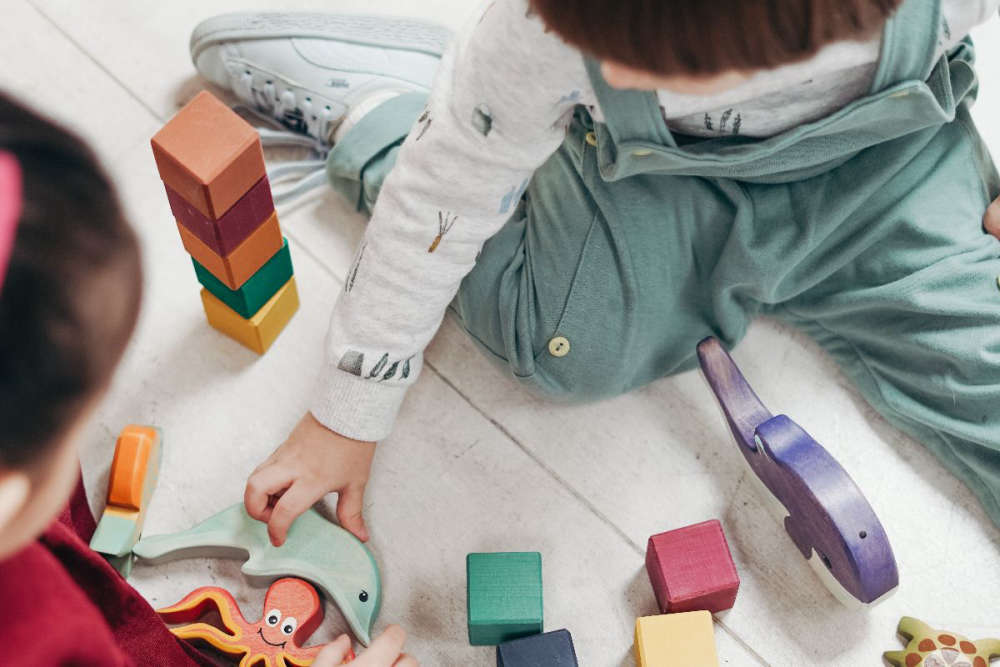 Details announced of free childcare for two and three year olds
Details announced of free childcare for two and three year olds
 18-year-olds to have access to Jersey social housing
18-year-olds to have access to Jersey social housing
 CI ferry operators to work together to improve inter-islands travel
CI ferry operators to work together to improve inter-islands travel

